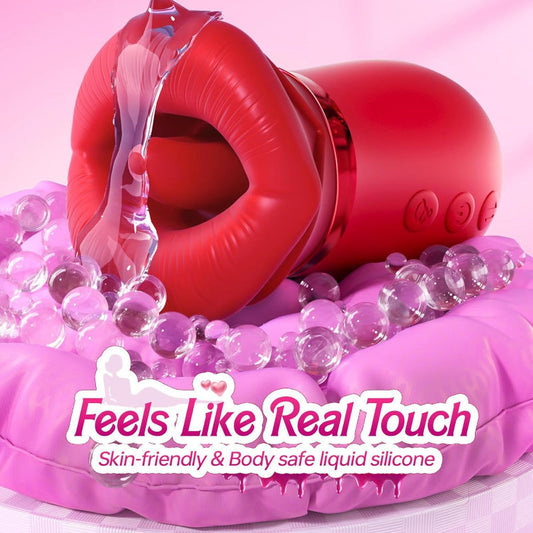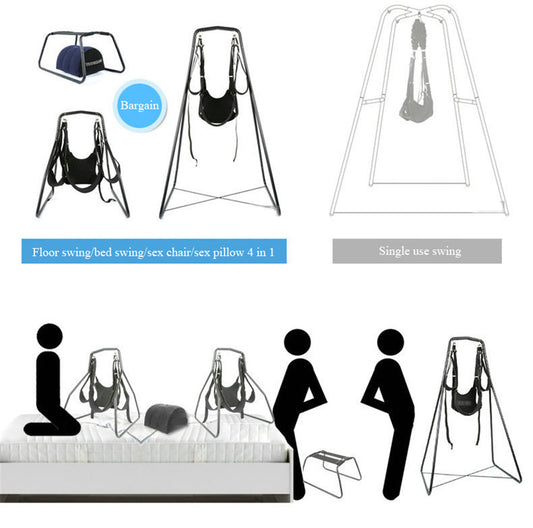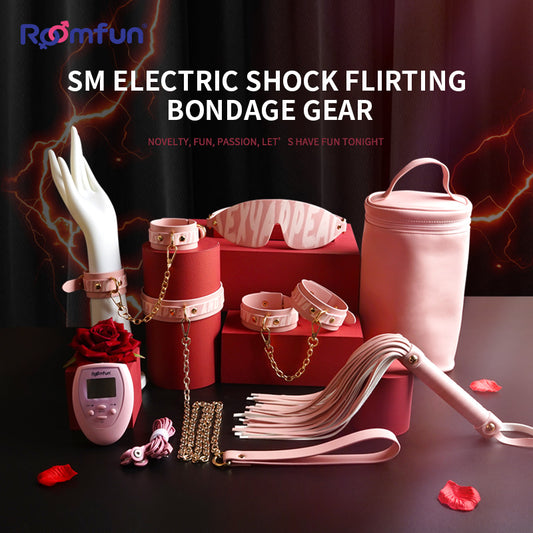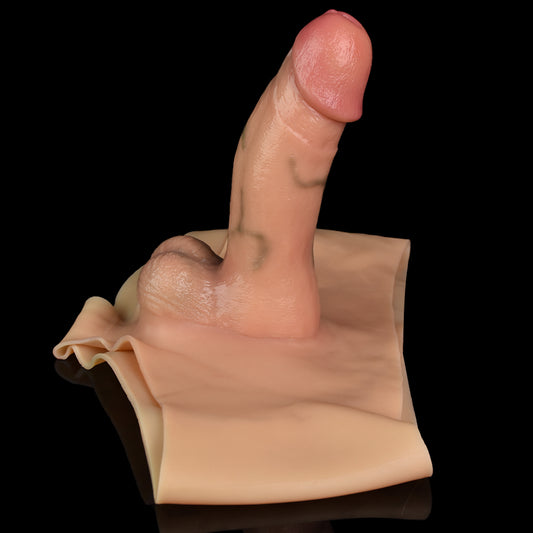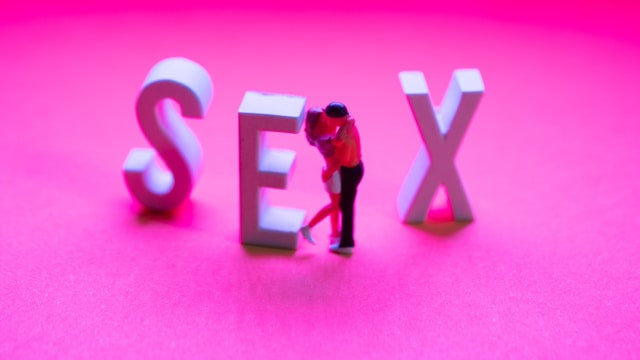
Understanding Libido From Instinctive Drive to Practical Enhancement Guide
Share
What is Libido? – It's More Complex Than You Think
Libido is commonly understood as the instinctive drive for intimacy, pleasure, and procreation. Freud was one of the first to describe it as a manifestation of the "life drive," while modern sex psychology emphasizes it as a complex state influenced by psychological, physiological, and social factors.
According to research from Harvard Medical School, libido is not only impacted by sex hormones like testosterone and estrogen but also by neurotransmitters in the "reward system" such as dopamine and oxytocin. High libido doesn't necessarily mean "high energy," and low libido doesn't necessarily indicate a "problem"—it’s more like an emotional thermometer, reflecting one's current physical and emotional state and relationship needs.

The reality is far more complicated than textbook definitions. Some people experience high libido, becoming agitated if they don’t engage in sex daily, while others are indifferent, seeing it as merely a “routine ritual.” There are also those whose libido fluctuates greatly depending on emotional states, with periods of intense desire followed by phases of complete disinterest. This variation can stem from a variety of factors: hormone levels, stress, relationship satisfaction, medication side effects, traumatic experiences, or even sleep quality.

Therefore, "normal libido" doesn't really exist. What's truly important is whether it feels comfortable for you and whether it harmonizes with your life pace and intimate relationships. Rather than comparing your sexual frequency to others, it's more valuable to listen to your own body and emotions.
Why Does Libido Decrease? Four Core Factors
Hormonal Fluctuations: When the Body Quietly Pulls the "Brakes
" Some people notice that a previously passionate partner has lost interest in intimate contact, even avoiding kissing. This could be a result of hormonal shifts. For example, a drop in testosterone levels in men directly impacts libido and erectile function, while women may experience dryness, pain, and reduced desire during the postpartum period or menopause due to fluctuations in estrogen and progesterone. Improvement
Suggestion: If this situation persists, encourage your partner to undergo a basic health checkup or hormone level testing. Understanding the body's status is the first step. Women can discuss estrogen replacement therapy or lubricants with their doctors, while men can focus on diet, sleep, and regular exercise to boost natural testosterone levels.
Psychological State: Anxiety Presses the "Brake"
"I love you, but I just don't want to have sex"—this can be confusing and even hurtful to hear. But often, it’s not a relationship issue; it’s a result of battling stress, anxiety, or depression. In today's fast-paced world, many people are under pressure from their careers, parenting responsibilities, or self-doubt. Those with traumatic sexual experiences or body image concerns may also find it harder to turn on their "sexual response switch."

Improvement Suggestion: In these cases, offering space is more important than "demanding intimacy." Listening is more effective than pressuring, and spending time together in non-sexual but warm ways (like hugging, cooking, or bathing together) can help create a psychological sense of security. For deeper issues, consider psychological counseling for support.
Routine Life: The Body Falls Asleep
"We're doing great, but we just can’t get it up." Long periods of inactivity, irregular schedules, and poor eating habits can cause the body's "sexual circuitry" to enter low-power mode. When partners only spend time watching TV, scrolling through their phones, and going about their routines, sex can degrade into a "chore" rather than something exciting.
Suggestion: Desire itself needs to be "ignited." Start with simple changes like jogging together, trying healthy recipes, or taking weekend trips. These activities, though not directly related to sex, can rejuvenate both body and emotional energy, allowing libido to naturally return rather than be forced.
Familiarity Masks the Erosion of Desire
In some relationships, the issue isn’t a lack of love but rather an excess of "habit." Every intimate moment feels like a copy-paste, and the repetitive nature causes the body to stop feeling stimulated, which in turn reduces libido over time. Even when there's a desire to reconnect, it often feels lacking.
Suggestion: Rather than pushing for more frequent sex, try to reshape the rhythm of your relationship. Pause current sexual routines and set aside time for "non-goal-oriented" intimate activities, such as mutual massages, sensory play, or role-playing. Redefining the meaning of "touch" can sometimes be more important than the act itself.
How to Scientifically and Effectively Enhance Libido?
Building the Physiological Foundations of "Desire"
In the morning park, people are running or doing squats. You, like them, aren't doing this to lose weight, but to wake up your sex hormones. Research indicates that combining aerobic and resistance training (like 30 minutes of brisk walking plus 10 minutes of dumbbell exercises) can effectively regulate testosterone and estrogen levels, especially for individuals aged 35 and above who experience fluctuating libido (Journal of Sexual Medicine, 2021). Additionally, incorporating zinc-rich foods (like oysters and nuts) and Omega-3 (from deep-sea fish) has been proven to enhance sex hormone synthesis.
To ensure this "inner awakening" becomes tangible, you might use a period tracking app to mark ovulation days and identify peak libido periods. Then, remotely control a vibrating egg, allowing yourself to subtly feel the stimulation during your commute or work. This "body activation" feeling is not just foreplay but a way to establish a sense of self-ownership.
At Night, Focus on Who You Want to Become: The Moment of Unmasking Sexual Shame
Sex psychologist Dr. Justin Lehmiller notes that acknowledging and acting on sexual fantasies strengthens one’s sexual self-identity, and this positive feedback often directly enhances libido (The Psychology of Human Sexuality, 2020). Imagine turning your bedroom into a theater. He wears a leather eye mask, and in that moment of darkness, his sensitivity to sound, scent, and touch sharply increases.

You wear a uniform, no longer offering gentle caresses, but instead the firm pressure of a soft leather whip and intense nipple clamps. Restraints hold his hands and feet, leaving him with no escape, focusing solely on the rhythm you dictate. You control the electric stimulator’s intensity, adjusting his neurological arousal within the safety of agreed-upon boundaries, honing the space between comfort and loss of control.

These tools—ranging from eye masks and handcuffs to ball gags and nipple clamps—aren't designed to create pain but to help both partners temporarily shed their societal roles and identities, surrendering fully to sensory experiences. The "restrictions" and "unpredictability" of BDSM devices form the core mechanism of sexual stimulation, something often missing in traditional intimate encounters for those with low libido. When the brain begins to re-link "sex" with surprise, tension, dominance, and escape, libido is reignited.
Making Sex “Arranged”: Rekindling the Stimulus from Intimate Rituals
You set up a "foreplay corner" in the bedroom, neatly arranging a bottle of cooling lubricant, a scented candle, and a feather brush—not for the sake of ritual, but to make desire tangible. According to the Sexual and Relationship Therapy journal’s 2022 report, 76% of 127 long-term couples tracked stated that regularly scheduling "non-penetrative sexual practices" significantly enhanced their sexual anticipation and pleasure intensity.
This night, you set the rules: no penetration, only external stimulation toys. He uses the feather brush to caress your arms and behind your ears, then applies warm wax to massage your shoulders. Meanwhile, you place nipple clamps and a ball gag on him, adjusting the vibrator’s intensity with every moan and movement.
Understanding and Enhancing Libido with LustBond
Sexual desire is an energy that can be nurtured and regulated, not a measure of personal worth. Everyone's sexual desire is unique, and fluctuations in desire are normal; there's no need to be anxious about it. We should proactively intervene and use the right methods to ignite it. LustBond sex toys are not designed to replace human desire, but to help awaken sexual desire through sensory stimulation and scenario setting, breaking through fixed sexual patterns, and enhancing the quality of intimate relationships.
You haven’t lost your sexual desire, you’ve simply lost the way to activate it. LustBond offers a range of tools, such as vibrators, handcuffs, and blindfolds, that enhance desire, foster new emotional connections, and create unique sexual experiences. With the assistance of these tools, you can take control of the pace and intensity of your desire, actively reignite it, and bring freshness and depth to your sex life, rediscovering intimacy and passion with your partner.






